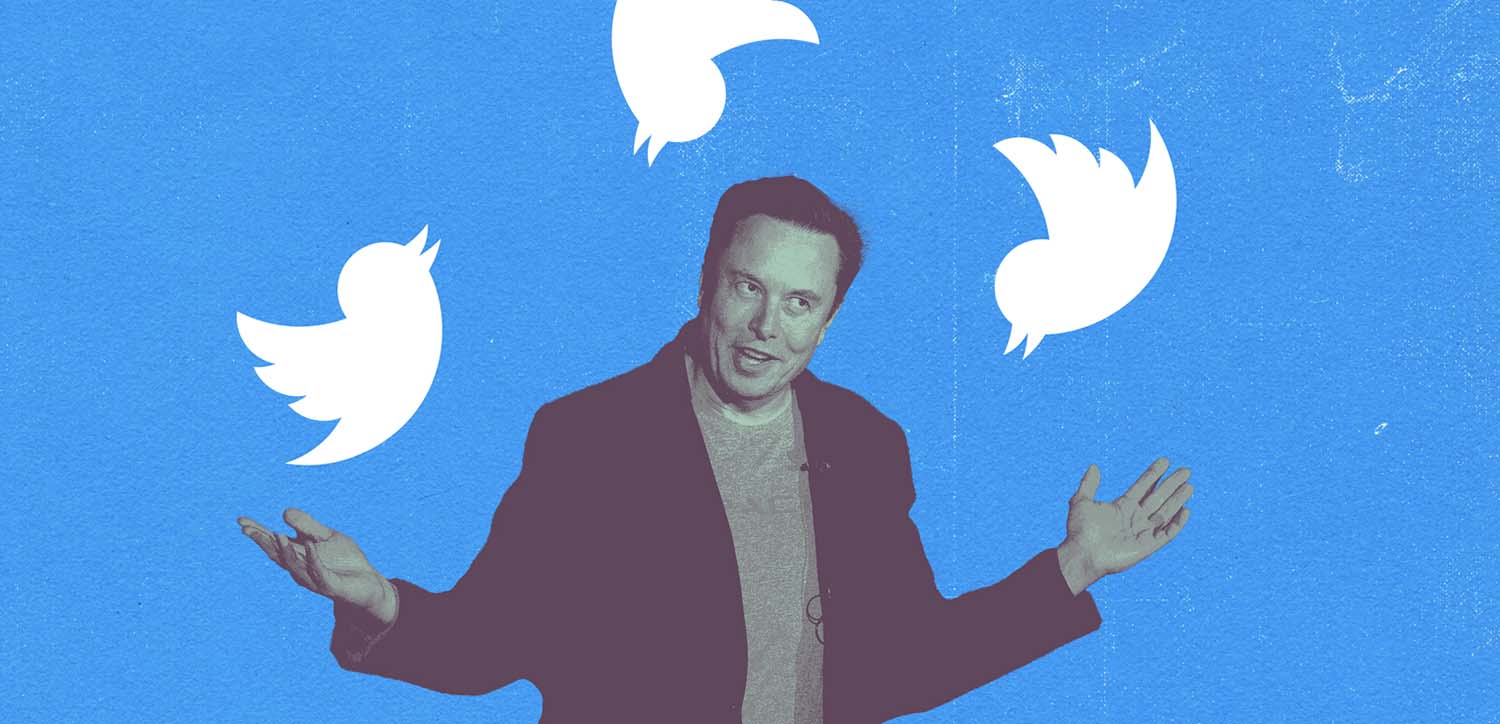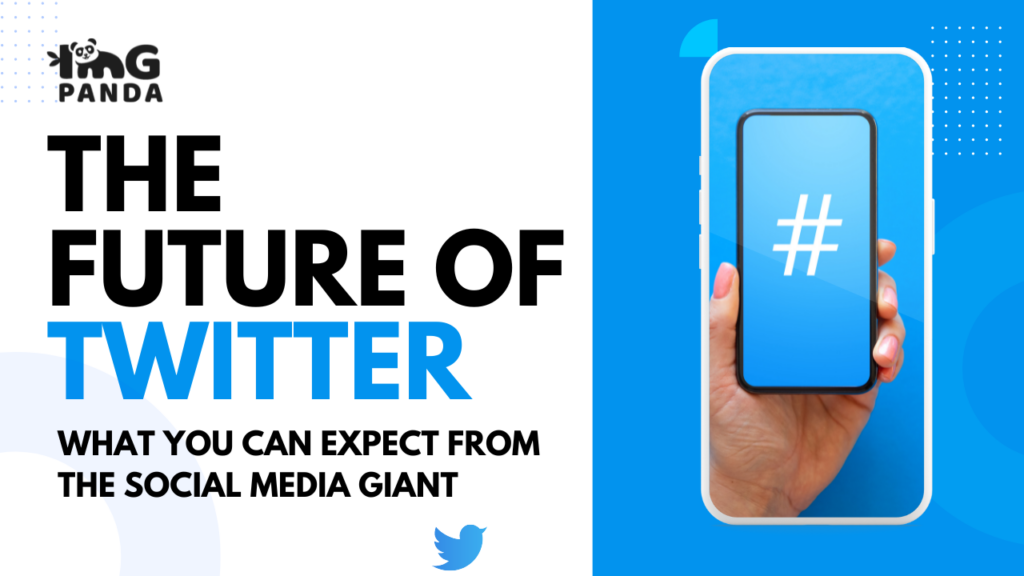Introduction
Twitter is a popular social media platform that allows users to share their thoughts and ideas in short, concise messages known as tweets. Since its launch in 2006, Twitter has become a staple in the world of social media, with millions of active users and a significant impact on the way people communicate and consume information online.
However, like all social media platforms, Twitter faces a range of challenges and concerns as it looks toward the future. For example, Twitter has seen a decline in user growth and engagement, as well as increasing competition from other social media platforms. Additionally, Twitter has struggled with content moderation and misinformation, which has raised concerns about the platform's impact on public discourse and democracy.
Given these challenges, it is essential to explore what the future may hold for Twitter and how the platform could evolve to address these issues. This topic is of particular importance as Twitter plays a significant role in shaping public opinion and discourse, and any changes to the platform could have far-reaching impacts on society. Therefore, in this article, we will examine the potential future directions for Twitter and what users can expect from this social media giant in the years to come.
Also Read This: How to Temporarily Disable Your Behance Profile
Twitter's current challenges
Twitter, like any other social media platform, faces several challenges that could affect its future growth and success. Here are some of the current challenges that Twitter is facing:
[caption id="attachment_193197" align="alignnone" width="1200"] Twitter's current challenges[/caption]
Twitter's current challenges[/caption]
Declining user growth and engagement:
Twitter's user growth has slowed down in recent years, with the number of active users remaining stagnant. Additionally, the platform has seen a decline in user engagement, as users spend less time on the platform and post fewer tweets.
Increasing competition from other social media platforms:
Twitter faces stiff competition from other social media platforms such as Facebook, Instagram, and TikTok. These platforms have been successful in attracting younger users, which has resulted in Twitter losing a significant portion of its user base.
Issues with content moderation and misinformation:
Twitter has struggled with content moderation and misinformation, which has led to criticism of the platform's role in promoting false information and hate speech. The platform has been accused of not doing enough to remove harmful content from its platform, which has raised concerns about its impact on public discourse and democracy.
Ad revenue challenges:
Twitter heavily relies on advertising revenue, but the platform has faced challenges in generating ad revenue due to the decline in user engagement and competition from other platforms.
Technical challenges:
Twitter has also faced technical challenges such as server outages and hacking incidents that have resulted in the platform being inaccessible to users.
These challenges present significant hurdles for Twitter to overcome as it looks toward the future. However, there are potential solutions and strategies that the platform could adopt to address these challenges and improve its future prospects.
Also Read This: How to Cook Spaghetti with an Easy Video Recipe
Twitter's potential future directions
Twitter has several potential future directions that it could take to address the challenges it faces and improve its future prospects. Here are some potential directions that Twitter could take:
[caption id="attachment_193198" align="alignnone" width="1500"] Twitter's potential future directions[/caption]
Twitter's potential future directions[/caption]
Increased focus on monetization:
Twitter could explore new revenue streams and focus on monetization to drive growth. This could include introducing subscription-based models, offering premium features to users, or partnering with businesses for sponsored content.
Improvements to content moderation and fact checking:
Twitter could take steps to improve its content moderation and fact-checking processes to reduce the spread of misinformation and harmful content. This could involve investing in technology and hiring more moderators to review content and remove harmful content from the platform.
Expansion into new areas:
Twitter could explore new areas beyond its traditional core focus on social media. This could include expanding into e-commerce, enabling users to buy products directly through the platform, or introducing audio-based features, similar to the social audio platform Clubhouse.
Enhanced user experience and Personalization:
Twitter could improve its user experience and personalization by introducing new features and improving its algorithm. This could involve making it easier for users to discover content, improving the timeline and notification system, and offering more personalized recommendations.
Acquisition and partnerships:
Twitter could explore acquisition and partnership opportunities to expand its reach and capabilities. This could involve acquiring companies in complementary areas such as news or media, or partnering with other social media platforms to offer new features or reach new audiences.
These potential directions offer a glimpse into what Twitter's future could look like. However, it remains to be seen which direction the platform will ultimately take and how it will navigate the challenges it faces.
Also Read This: Configuring Web Filters with Fortiguard Downloader
Impact of Twitter's future on users and society
The Future of Twitter has the potential to impact both users and society in significant ways. Here are some potential impacts of Twitter's future: Here's a video discussing what lies ahead for Twitter in the future.
Changes in how people consume and interact with information:
Twitter has become a primary source of news and information for many people. Any changes to the platform's algorithms or features could significantly impact how people consume and interact with information. For example, Twitter's potential expansion into e-commerce could make it easier for users to make purchasing decisions directly through the platform.
Potential benefits and drawbacks of Twitter's future directions:
Twitter's future directions could have both positive and negative impacts. For example, enhanced content moderation and fact-checking could reduce the spread of harmful content on the platform, but could also lead to concerns about censorship and free speech. Similarly, the introduction of subscription-based models could provide a new revenue stream for the platform, but could also create barriers to entry for some users.
Ethical considerations and responsibilities for Twitter as a social media giant:
Twitter has a significant responsibility as a social media giant to ensure that its impact on society is positive. This includes considerations such as protecting user privacy, preventing the spread of misinformation and hate speech, and promoting healthy online discourse. Any future directions that Twitter takes must consider these ethical responsibilities.
Overall, the future of Twitter has the potential to impact how people consume and interact with information, as well as raise ethical considerations and responsibilities for the platform as a social media giant. As such, it is important for Twitter to consider the potential impacts of any future directions it takes and to prioritize the interests of users and society as a whole.
Also Read This: Guide to Installing Drivers on Windows 7 from a CD
FAQs
What is Twitter?
Twitter is a social media platform that allows users to share short, concise messages known as tweets.
What are some of the challenges that Twitter is currently facing?
Twitter is currently facing challenges such as declining user growth and engagement, increasing competition from other social media platforms, issues with content moderation and misinformation, ad revenue challenges, and technical challenges.
What are some potential future directions for Twitter?
Some potential future directions for Twitter include an increased focus on monetization, improvements to content moderation and fact-checking, expansion into new areas such as e-commerce or audio-based features, enhanced user experience and personalization, and acquisition and partnerships.
How could Twitter's future impact users and society?
Twitter's future has the potential to impact how people consume and interact with information, as well as raise ethical considerations and responsibilities for the platform as a social media giant.
What ethical considerations and responsibilities does Twitter have as a social media giant?
Twitter has a significant responsibility to protect user privacy, prevent the spread of misinformation and hate speech, and promote healthy online discourse. Any future directions that Twitter takes must consider these ethical responsibilities.
Also Read This: Canva Image Extraction
Pros and Cons
| Potential Future Direction | Pros | Cons |
|---|---|---|
| Increased focus on Monetization | - Provides a new revenue stream for the platform
- Can offer premium features to users - Partnerships with businesses can benefit both parties |
- Subscription-based models may create barriers to entry for some users
- Over-reliance on advertising revenue can impact user experience |
| Improvements to content moderation and fact-checking | - Reduces the spread of misinformation and harmful content on the platform
- Promotes healthy online discourse - Builds trust with users |
- Concerns about censorship and free speech
- Costly to invest in technology and hire more moderators |
| Expansion into new areas | - Offers new opportunities for growth and revenue
- Attracts new audiences and provides a more diverse user experience - Can enhance the platform's overall value proposition |
- Risk of losing focus on core strengths and values
- Expansion can be costly and risky |
| Enhanced user experience and Personalization | - Improves overall user experience and Engagement
- Encourages users to spend more time on the platform - Personalized recommendations can increase relevance and Satisfaction |
- Can lead to concerns about privacy and data collection
- Algorithmic bias can lead to unequal access to content |
| Acquisition and partnerships | - Provides access to new technologies and Capabilities
- Enhances the platform's value proposition - Can offer a competitive advantage |
- Can be costly and risky
- Can result in integration challenges and cultural differences |
Conclusion
In conclusion, the future of Twitter is a complex and multifaceted issue that requires careful consideration and planning. Twitter faces several challenges, including declining user growth and engagement, increasing competition from other social media platforms, and issues with content moderation and misinformation. However, there are potential solutions and strategies that Twitter could adopt to address these challenges and improve its future prospects.
Twitter's potential future directions include an increased focus on monetization, improvements to content moderation and fact-checking, expansion into new areas, enhanced user experience and personalization, and acquisition and partnerships. While each of these directions offers potential benefits and drawbacks, it is essential for Twitter to prioritize the interests of users and society as a whole when making decisions about its future direction.
The impact of Twitter's future direction could have far-reaching implications for users and society, including changes in how people consume and interact with information, and ethical considerations and responsibilities for Twitter as a social media giant. As such, it is important for Twitter to approach its future direction with careful consideration and transparency.
Overall, the future of Twitter is not set in stone, and the platform has the potential to evolve and adapt in response to its challenges and opportunities. By prioritizing user needs and ethical responsibilities, Twitter can continue to play a significant role in shaping public opinion and discourse in the years to come.
